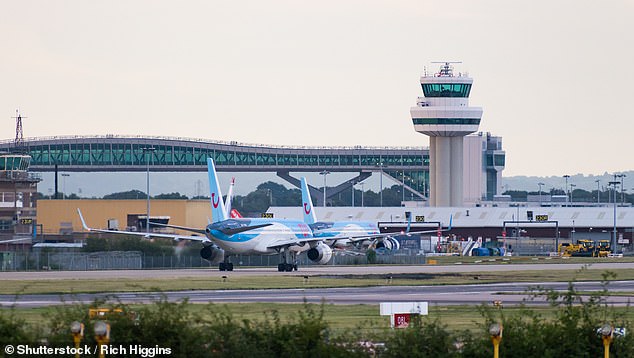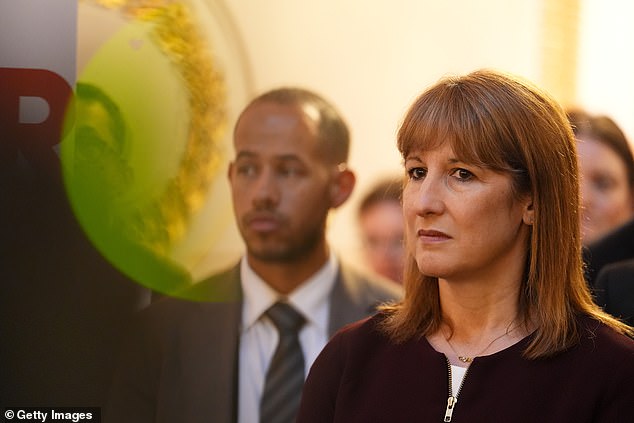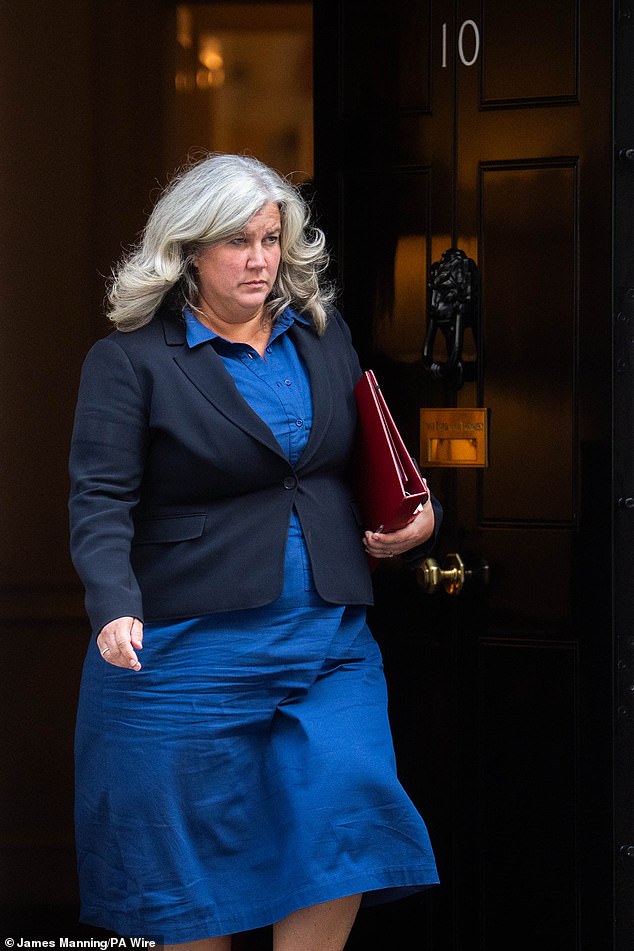Rachel Reeves today insisted expanding Gatwick airport can ‘kickstart’ the economy – even though the second runway might not operate until 2029.
The Chancellor has hailed the scheme getting the go-ahead from the government, saying it means ‘thousands more jobs and billions more in investment’.
Ms Reeves is desperate to find a way of encouraging growth as she faces a yawning black hole in the finances at the Budget in November.
However, sources are only mooting 2029 as a target for the first flights taking off from the new full runway at the Sussex hub.
It is expected to take until the late 2030s to achieve the full benefits in terms of extra passengers.

London Gatwick Airport (pictured) is set for a new £2.2billion second runway after the plan was given the go-ahead by Transport Secretary Heidi Alexander

Chancellor Rachel Reeves has hailed the scheme getting the go-ahead from the government, saying it means ‘thousands more jobs and billions more in investment’
Ms Reeves said ministers were backing ‘the builders, not the blockers’. ‘This Government promised to kickstart the economy – and we are,’ she said.
‘A second runway at Gatwick means thousands of more jobs and billions more in investment for the economy.’
She said: ‘By slashing red tape and transforming the planning system to get Britain building again we are investing in this country’s renewal and building an economy that works for working people.’
Visiting the airport today, Ms Reeves said the backing was ‘in addition to our commitments to a third runway at Heathrow, small modular reactors and a new nuclear power station in Suffolk, backing energy projects and transport projects right around the country’.
‘This extra runway at Gatwick will mean that people going on holiday will have a greater choice of destinations, it will mean lower costs for a family holiday,’ she said.
‘And it will also mean more good jobs paying decent wages through this injection of cash into our economy.
‘We said as a Government we will back the builders and not the blockers, and that is exactly what we are doing with this announcement.’
The privately financed project will see the West Sussex airport will move its emergency runway 13 yards north, enabling it to be used for departures of narrow-bodied planes such as Airbus A320s and Boeing 737s.
Such changes will enable it to be used for about 100,000 more flights a year. In 2024 Gatwick handled around 265,000 flights in total.
Transport Secretary Heidi Alexander formally backed the scheme last night, with the government saying it was a a ‘no-brainer’.
The Cabinet minister is satisfied with adjustments made, covering issues such as noise mitigation and the proportion of passengers who would travel to and from the airport by public transport.
The Planning Inspectorate initially rejected the airport’s application and earlier this year recommended Ms Alexander should approve the project if the changes were made.
Gatwick says its plans will create £1billion per year in economic benefits, and generate an additional 14,000 jobs.
A Government source said: ‘The Transport Secretary has cleared Gatwick expansion for take-off.
‘With capacity constraints holding back business, trade and tourism, this is a no-brainer for growth.
‘This Government has taken unprecedented steps to get this done, navigating a needlessly complex planning system, which our reforms will simplify in future.
‘It is possible that planes could be taking off from a new full runway at Gatwick before the next general election.
‘Any airport expansion must be delivered in line with our legally binding climate change commitments and meet strict environmental requirements.’

Transport Secretary Heidi Alexander formally backed the scheme last night, with the government saying it was a a ‘no-brainer’
Gatwick is not the only southeastern travel looking to increase its capacity.
On August 1 – one day after the government’s official deadline – Heathrow Airport submitted plans for a third runway, with CEO Thomas Woldbye calling the need for expansion ‘urgent’.
The same month the travel hub handled more than eight million monthly passengers for the first time in its history.
Heathrow also reported its busiest ever day on August 1, with around 270,000 people passing through the airport.










